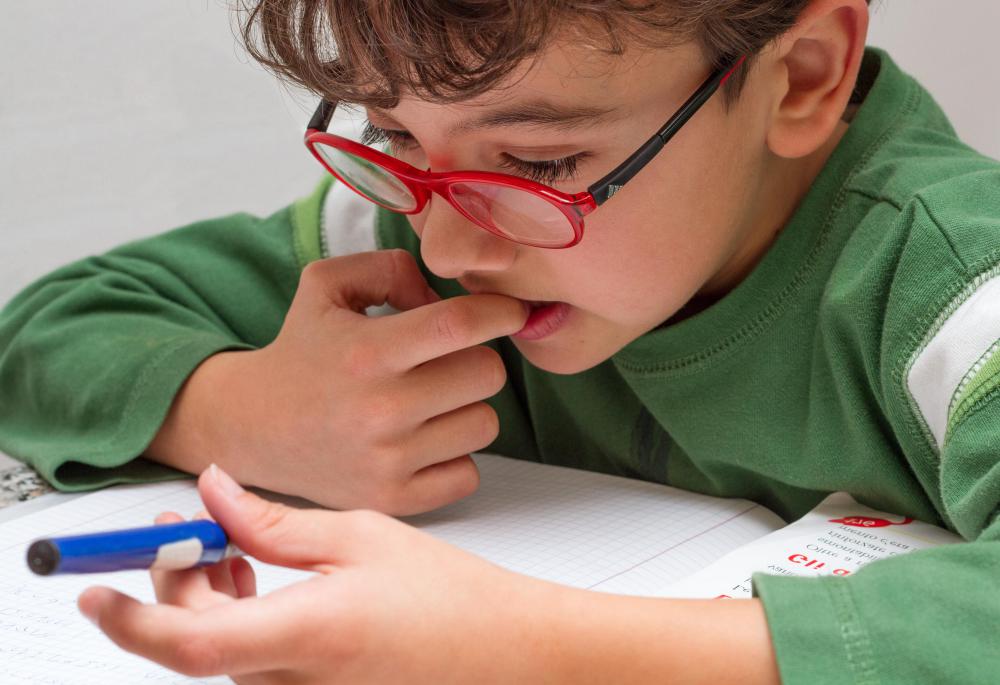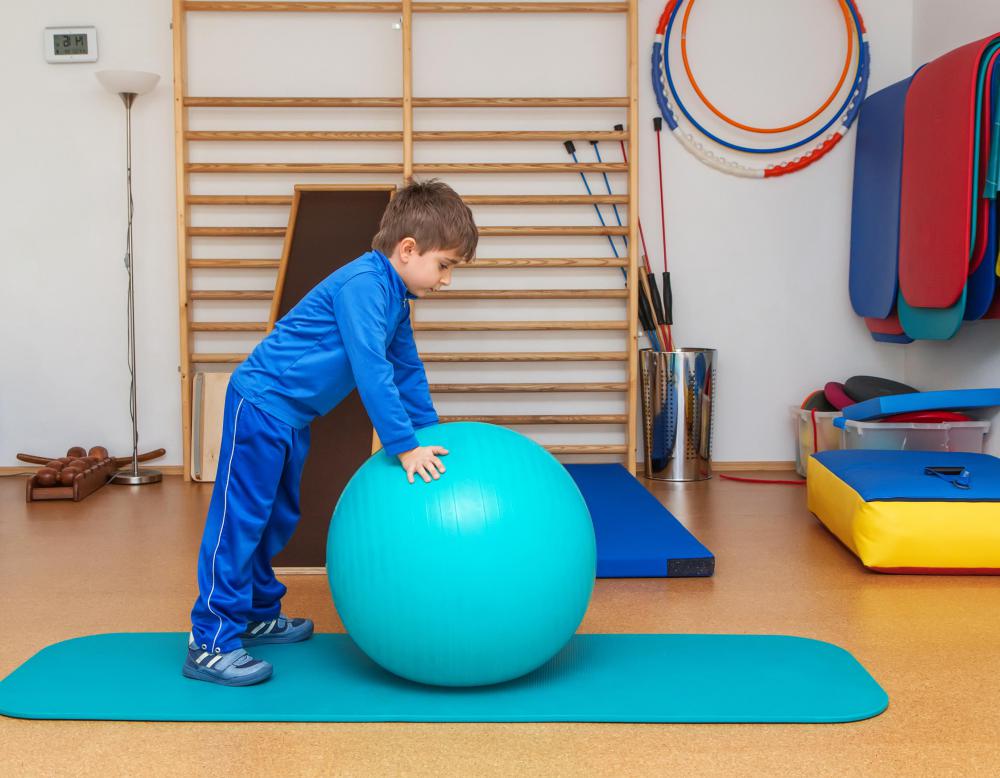At TheHealthBoard, we're committed to delivering accurate, trustworthy information. Our expert-authored content is rigorously fact-checked and sourced from credible authorities. Discover how we uphold the highest standards in providing you with reliable knowledge.
What is Atypical Autism?
Atypical autism is a diagnosis given to children who have some autistic symptoms but do not display all of the traits necessary for a diagnosis of autism. These types of cases, especially the milder forms, tend to be diagnosed at a later age than autism. In addition, although these individuals usually experience some form of impairment, their overall life skills are often more developed than people who completely fit the diagnostic criteria for autism.
There is no established cause of autism and atypical autism. People who are closely related to affected individuals have a higher than expected incidence of these disorders. This suggests a genetic basis, but there are clearly other factors at play. Although there are plenty of theories regarding environmental causes of autism, such as childhood vaccines and toxins like pesticides, there is little hard scientific proof for either of these factors.

The diagnosis of atypical autism is another name for Pervasive Developmental Disorder Not Otherwise Specified (PDD-NOS). Due to the strong overlap of this disorder’s symptoms with autism, however, it is commonly referred to as atypical autism rather than PDD-NOS. Although the symptoms and severity of atypical autism can vary widely from person to person, there are usually some common features.

A common trait is the impaired ability to interact with others socially. Some people with this disorder may have little or no interest in socializing and may not even attempt to communicate with other people. Others may desire social interaction, but do not know how to communicate effectively.
People with this disorder often have difficulty understanding non-verbal cues or language that is not meant to be taken literally. They often do not know how to react in an appropriate manner to other people’s emotions. These factors often lead to uncomfortable social interactions, therefore re-enforcing the tendency of people with atypical autism to prefer solitude.

Another common trait of people with atypical autism is a problem with language development. They usually display limited speaking and may have a much smaller vocabulary than other children in the same age group. Sometimes a child will begin to show normal language development that will suddenly begin to deteriorate.
Other possible symptoms of this disorder include the need to keep to a strict schedule and possible outbursts if this schedule is not kept. People with this disorder may have unusual reactions to certain colors, sounds, or smells due to difficulty dealing with sensory information. They might have a strong preference for a specific type of color or food and often have a hard time dealing with any variation from this.

Some people with this disorder have mild symptoms and may be able to lead a relatively normal life. These individuals are usually referred to as “high functioning.” Others may be quite impaired and have difficulty with everyday functions and may need to live either with a family member or in a care facility. Although there is no known cure for autism or atypical autism, individual or group behavioral therapy often has a positive effect on symptoms.
AS FEATURED ON:
AS FEATURED ON:
















Discussion Comments
My daughter is three and has been diagnosed with pddnos because of her speech and motor planning problems. We're seeing lots of different therapists and doctors, but I don't seem to get enough help or answers. It seems to me the people who should know the answers but clearly don't, and the therapists are more general and I end up doing all the work myself. I am so frustrated. Now I'm turning to a neurologist to see if they can give me more answers. She is making progress, but I'm not satisfied at all. She's only learning a new word like once a month and rarely speaks. Any parent can imagine how terrible this can be. I'm looking for answers and alternatives to classic therapy.
I agree with both of you. My son has communication issues, and because of this most kids think he is stupid of weird. He wants friends, but has no idea how to make them. The harder he tries to be normal, the worse it is for him.
It hurts me because there is nothing I can do to help that side of things. We are lucky that we have a close extended family, and at least he has his cousins and sister, but it is becoming harder for his sister to make friends as time goes on. She spends most of her time defending her brother. It is very painful for all of us.
I so agree with what you have said donbri5. It makes me feel better to know that someone else can relate to the anguish a mother has to deal with when they realize that their child has become painfully aware that the harsh words and actions of other children are directed towards him/her.
My son knows that he is different, that people want to avoid or back off from him, that they think he's "weird", but he doesn't understand why. And I am sure it is very painful to him. Just realizing that he is aware, is painful to me.
I used to work with challenged students at the local elementary school. We worked with a variety of students, and I saw this daily. I always think it's so hard for kids with atypical autism like that, since they are often very high functioning, but still get slapped with the stigma that is (unfortunately) associated with autism.
I don't know how anyone else feels, but I think sometimes the high functioning kids have it the hardest because they are caught in the middle. They know what is going on and want to participate, but it is so hard for them. Sometimes I would think the more challenged were better off because they are not aware of the harsh words and actions of the other children.
Post your comments